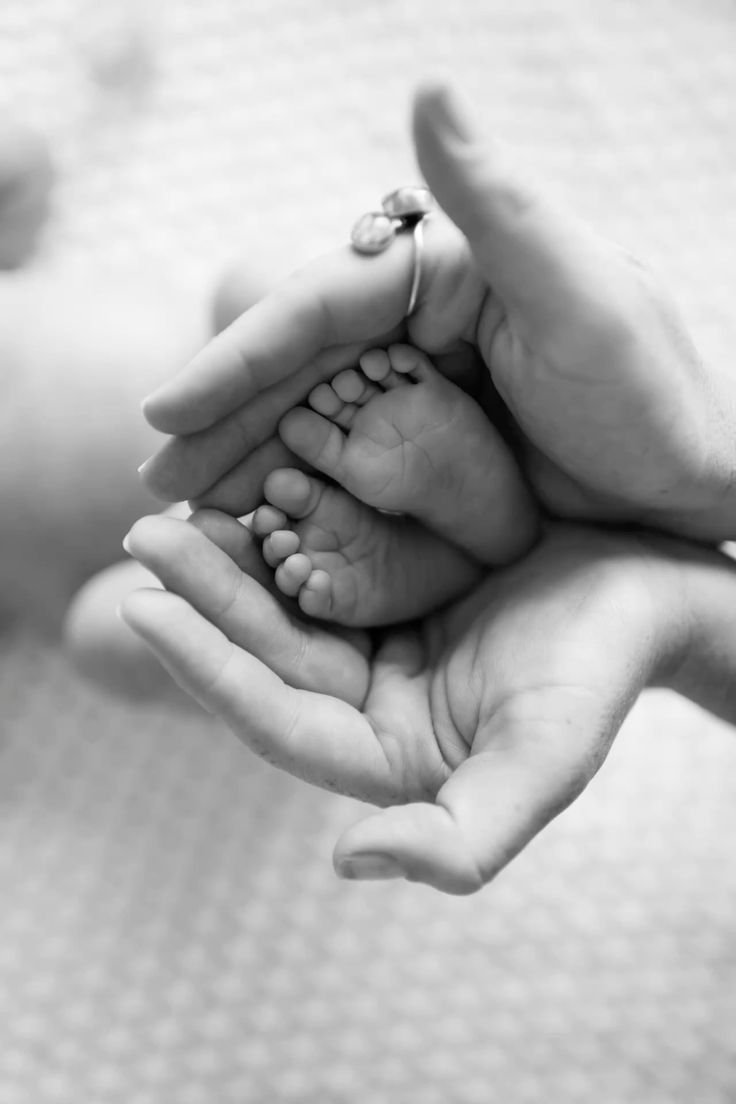Pregnancy and Fertility
Acupuncture for Fertility and Pregnancy
Acupuncture has long been recognised for its benefits in promoting fertility and supporting a healthy pregnancy. By balancing the body’s energy (Qi) and optimising reproductive health, acupuncture is a powerful tool to enhance fertility in both men and women.
Acupuncture is a holistic and supportive treatment for improving fertility, supporting natural conception, and enhancing the success of assisted reproductive technologies like IVF. It can optimise reproductive health, balance hormones, improve egg and sperm quality, and create a nurturing environment for pregnancy.
Welcoming a new member to the family is a beautiful blessing, but for many couples, the journey to conception or carrying a pregnancy to full term can be challenging. If you're facing difficulties with conception or having concerns about maintaining a healthy pregnancy, it can be an emotional and frustrating experience.
At Te Waiora - Health & Wellness, we offer a holistic and natural approach to fertility and pregnancy care. Our acupuncture and herbal medicine treatments are designed to be cost-effective, non-invasive, and most importantly, successful in supporting your body’s natural ability to conceive and nurture a healthy pregnancy.
If you're struggling with infertility or looking for ways to support a healthy pregnancy, acupuncture may be the solution you're looking for. Contact us to learn how we can help on your fertility journey.

How can Acupuncture help?
Pregnancy
Supporting Healthy Pregnancy: Acupuncture can be used during pregnancy to promote overall health and well-being. It helps reduce symptoms like nausea, morning sickness, fatigue, and back pain, making the pregnancy journey more comfortable.
Managing Pregnancy Discomforts: Common pregnancy-related discomforts like back pain, oedema (swelling), and sciatica can be alleviated with acupuncture. It helps reduce pain, improve circulation, and enhance overall comfort during pregnancy.
Pregnancy Care: Offering support during pregnancy, including managing common discomforts and fostering a healthy environment for your baby.
Promoting Labor: As the pregnancy progresses, acupuncture can be used from the 36th week onward to prepare the body for labor. It can help prepare the cervix, reduce the risk of post-term pregnancy, and encourage the natural onset of labor.
Reducing Stress and Anxiety: Acupuncture helps to calm the mind, reducing anxiety and stress levels during pregnancy. It supports the nervous system and promotes relaxation, creating a positive environment for both the mother and the baby.
Birth Preparation: Assisting you with both physical and emotional preparation for labor, so you feel empowered and ready for the big day.
After-Birth Care: Helping you recover and restore balance after childbirth, focusing on postpartum health and well-being.
Fertility
Pre-Conception Care: Helping you prepare your body for conception by promoting optimal health and balance for both partners.
Fertility Enhancement: Improving your chances of conception, whether you're trying naturally or undergoing assisted reproductive technology (ART).
Regulating Hormones: Acupuncture helps regulate reproductive hormones such as oestrogen, progesterone, FSH (follicle-stimulating hormone), and LH (luteinising hormone). This regulation is vital for healthy ovulation, menstrual cycles, and overall fertility.
Improving Ovarian Function and Egg Quality: For women, acupuncture stimulates blood flow to the ovaries and uterus, enhancing the production and quality of eggs. It helps improve the function of the ovaries, particularly in cases where egg quality is compromised, like with advancing age or conditions like PCOS.
Balancing Menstrual Cycles: Acupuncture can help regulate irregular cycles, restore ovulation, and improve the overall reproductive environment, making it easier for women to conceive naturally.
Increasing Sperm Quality: For men, acupuncture enhances sperm count, motility (movement), and morphology (shape). It helps optimise male reproductive health, improving chances of conception.
Reducing Stress: Stress can significantly affect fertility by disrupting hormonal balance and reproductive function. Acupuncture helps reduce stress by promoting relaxation and balancing the nervous system, leading to improved fertility.
Improving Uterine Health: Acupuncture increases blood flow to the uterus, improving the endometrial lining (the uterine lining where the embryo implants), which is crucial for successful conception and implantation.
Supporting IVF and Assisted Reproductive Technologies: Acupuncture is commonly used alongside IVF treatments. It helps prepare the body before IVF, improves ovarian function, and boosts the chances of successful embryo implantation. Studies suggest acupuncture before and after IVF transfers may enhance outcomes.

Pregnancy & Fertility
What is Infertility?
Infertility is defined as the inability to conceive after one year of regular, unprotected intercourse. It can be caused by issues in either the male or female reproductive systems. Infertility can be classified into:
Primary Infertility: Couples who have never been able to conceive.
Secondary Infertility: Couples who have conceived before but are unable to do so again after at least one year of trying.
Common Causes of Infertility
Female Infertility Causes:
Ovulatory disorders (e.g., PCOS, premature ovarian insufficiency)
Tubal issues (blocked fallopian tubes)
Uterine or cervical problems (e.g., fibroids, polyps, endometriosis)
Hormonal imbalances
Age-related fertility decline
Male Infertility Causes:
Sperm production issues
Obstructive causes
Hormonal imbalances
Unexplained Infertility: No clear cause can be identified, but acupuncture and Traditional Chinese Medicine (TCM) offer effective support for these cases through pattern diagnosis and individualised treatments.
Acupuncture Before IVF
Acupuncture can be a complementary treatment to IVF, improving outcomes by:
Preparing the body for the IVF process through treatments that improve egg quality and uterine lining.
Reducing stress and increasing the chances of embryo implantation.
Acupuncture sessions are ideally scheduled 1-2 times per week for 3 months before IVF, and on the day of the IVF transfer (one session before and one after the transfer) to support implantation and reduce the risk of miscarriage.
Conditions for Natural Conception
Regular Ovulation: Healthy, regular menstrual cycles are a good sign of ovulation.
Healthy Sperm: Sufficient, motile sperm is essential.
Clear Fallopian Tubes: Blockages can prevent the sperm from reaching the egg.
Healthy Uterine Environment: A thick, nourishing endometrial lining for embryo implantation.
Timed Intercourse: Understanding the fertile window (the five days leading up to and including ovulation) maximises chances of conception.
Acupuncture for Fertility
Before Ovulation: Points like CV4, DU20, SP6, and ST36 help regulate the reproductive system.
Post-Ovulation: Points like SP10, LI4, and ST29 support the luteal phase and implantation.
Herbal Support and Diet
TCM also utilises herbal remedies and dietary adjustments to support fertility:
Blood-Nourishing Foods: Bone broth, leafy greens, and organic meats to enhance fertility.
Yin-Nourishing Foods: Pork, duck, and goji berries for women with Yin deficiency.
Yang-Nourishing Foods: Walnuts, and warming spices for women with Yang deficiency.
Acupuncture During Pregnancy
Once pregnant, acupuncture can be continued to:
Support a healthy pregnancy by reducing symptoms like nausea, back pain, and anxiety.
Prevent miscarriage, especially during the critical first trimester.
Prepare for labor by starting acupuncture from the 36th week to stimulate labor when needed.
TCM Perspective on Fertility
TCM views fertility through the lens of balance, particularly the health of the kidneys, spleen, liver, and blood:
Kidney Qi: Vital for reproductive function, often addressed to improve egg quality and sperm production.
Spleen Qi: Responsible for the production of blood, which nourishes the uterus and supports healthy ovulation.
Liver Qi: Ensures smooth flow of energy and blood, reducing stress-related issues that impact fertility.
Acupuncture can help by
Balancing Hormones: Acupuncture helps regulate reproductive hormones such as FSH, LH, and estradiol, which are key for ovulation and conception.
Improving Ovarian Function: Enhances egg quality and improves the uterine environment for implantation.
Promoting Sperm Health: Improves sperm count, motility, and morphology in men.
Enhancing Circulation: Increases blood flow to the reproductive organs, nourishing the uterus and improving fertility.
FAQs About Acupuncture for Fertility
Can acupuncture be done during menstruation? Yes, it is especially beneficial for managing symptoms like dysmenorrhea (painful periods).
How long before IVF should I start acupuncture? It's recommended to start acupuncture 1-3 months before the IVF procedure to prepare the body.
Can acupuncture improve egg quality? Yes, acupuncture enhances ovarian function and helps improve egg quality, particularly when combined with a balanced diet and lifestyle.
References:
Choi, T. Y., Lee, M. S., Lee, H., Lee, H., & Shin, B. C. (2013). Acupuncture for the treatment of infertility: A systematic review and meta-analysis of randomized controlled trials. BMC Complementary and Alternative Medicine, 13, 37.
Cui, Y., Shi, X., Huang, Y., & Zhang, L. (2012). Acupuncture and in vitro fertilization: A systematic review of randomized controlled trials. The Journal of Alternative and Complementary Medicine, 18(2), 121-131.
Gao, X., Zhang, J., Wu, W., Liu, S., & Huang, S. (2013). Effect of acupuncture in preventing miscarriage in women with a history of recurrent miscarriage: A randomized controlled trial. The Journal of Reproductive Medicine, 58(5), 249-255.
Lee, J. H., Choi, T. Y., Lee, M. S., Lee, H., Lee, H., Shin, B. C. (2009). Acupuncture for female infertility: A systematic review and meta-analysis. The Journal of Alternative and Complementary Medicine, 15(4), 361-370.
Lee, J. H., Choi, T. Y., Lee, M. S., Lee, H., Lee, H., Shin, B. C. (2014). Acupuncture for managing nausea and vomiting during pregnancy: A systematic review and meta-analysis of randomized controlled trials. The Journal of Alternative and Complementary Medicine, 20(8), 577-583.
Liu, J., Manheimer, E., & Linde, K. (2009). Acupuncture for treatment of infertility. Cochrane Database of Systematic Reviews, (4).
Malm, P. A., Anderson, B., & Oh, J. (2012). Acupuncture in pregnancy: A systematic review. Journal of Midwifery & Women's Health, 57(3), 226-231.
Pang, C. H., Hwang, S. S., & Leung, P. C. (2014). Effectiveness of acupuncture on ovarian function and fertility outcomes in women with polycystic ovary syndrome: A systematic review and meta-analysis. Fertility and Sterility, 101(6), 1620-1629.
Rossi, E., Mazzoni, M., & Grandi, G. (2011). Acupuncture and endometrial blood flow in women with infertility: A randomized controlled trial. Journal of Traditional Chinese Medicine, 31(3), 215-220.
Torelli, P., Montagna, E., & D’Ambrosio, F. (2012). Acupuncture and pregnancy: A systematic review of randomized controlled trials and their implications for obstetrics. Complementary Therapies in Medicine, 20(1), 14-20.
Vickers, A. J., Rees, R. W., & Zollman, C. (2018). Acupuncture for acute low back pain: A systematic review and meta-analysis. The Clinical Journal of Pain, 34(3), 207-214.
Zhang, W., Yue, J., & Yang, Y. (2015). Acupuncture for male infertility: A systematic review of randomized controlled trials. Journal of Andrology, 36(2), 134-139.
Zhao, L., Chen, J., & Li, P. (2011). Acupuncture for improving pregnancy rates in women undergoing in vitro fertilization: A systematic review and meta-analysis. Human Reproduction Update, 17(6), 765-773..

